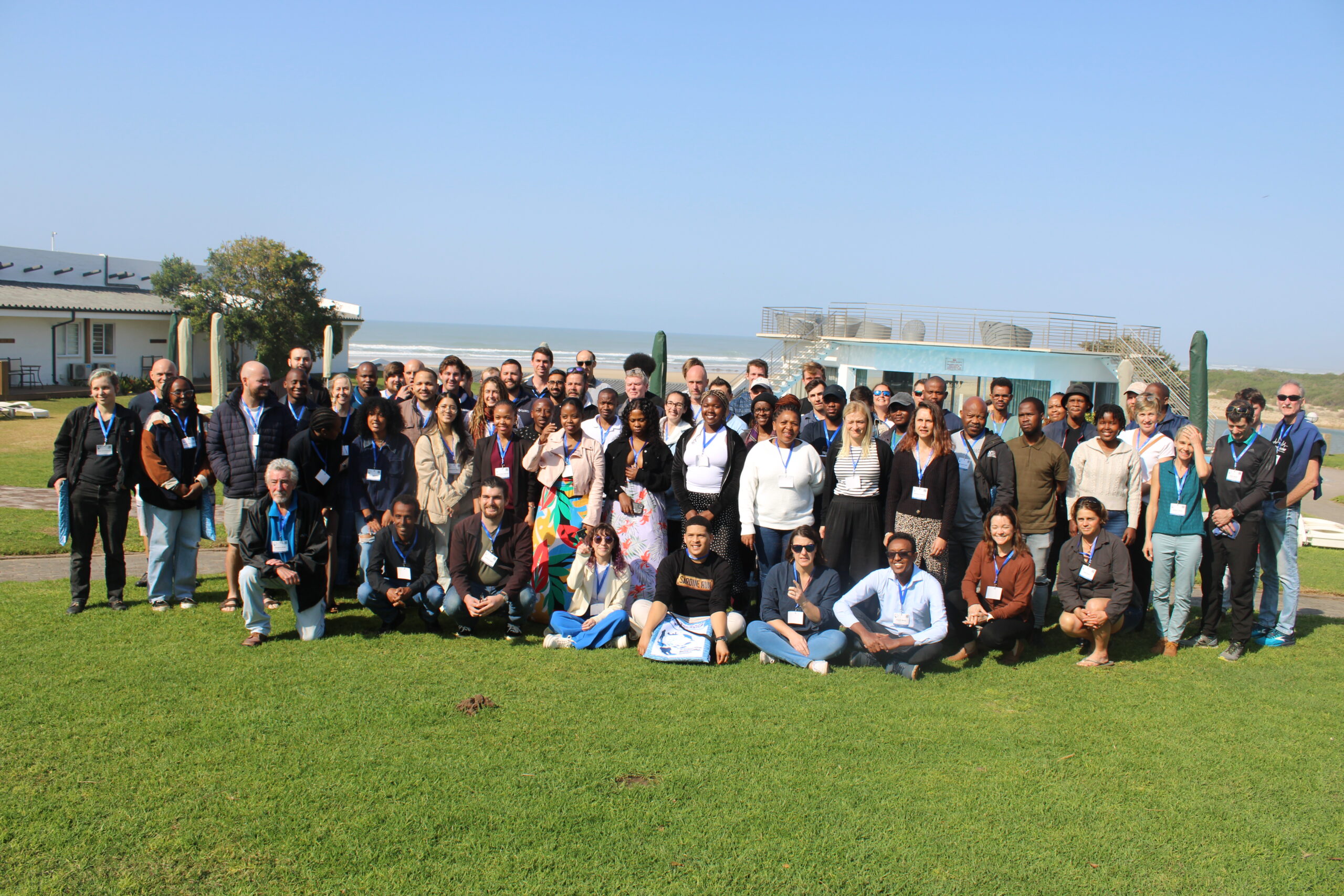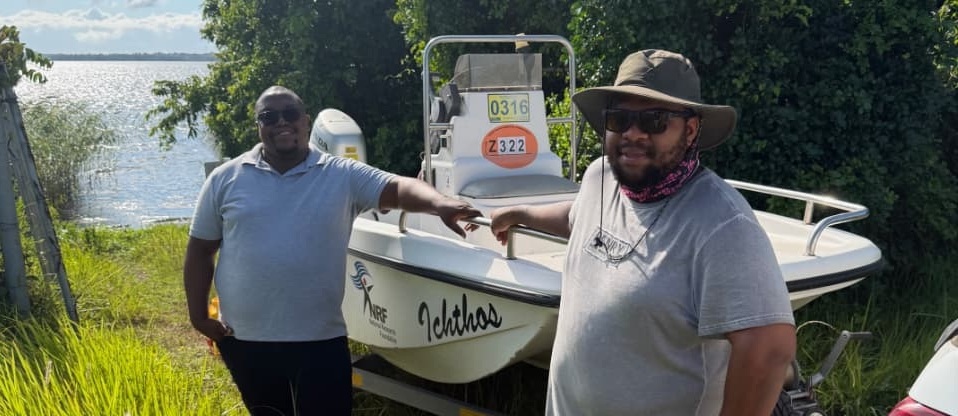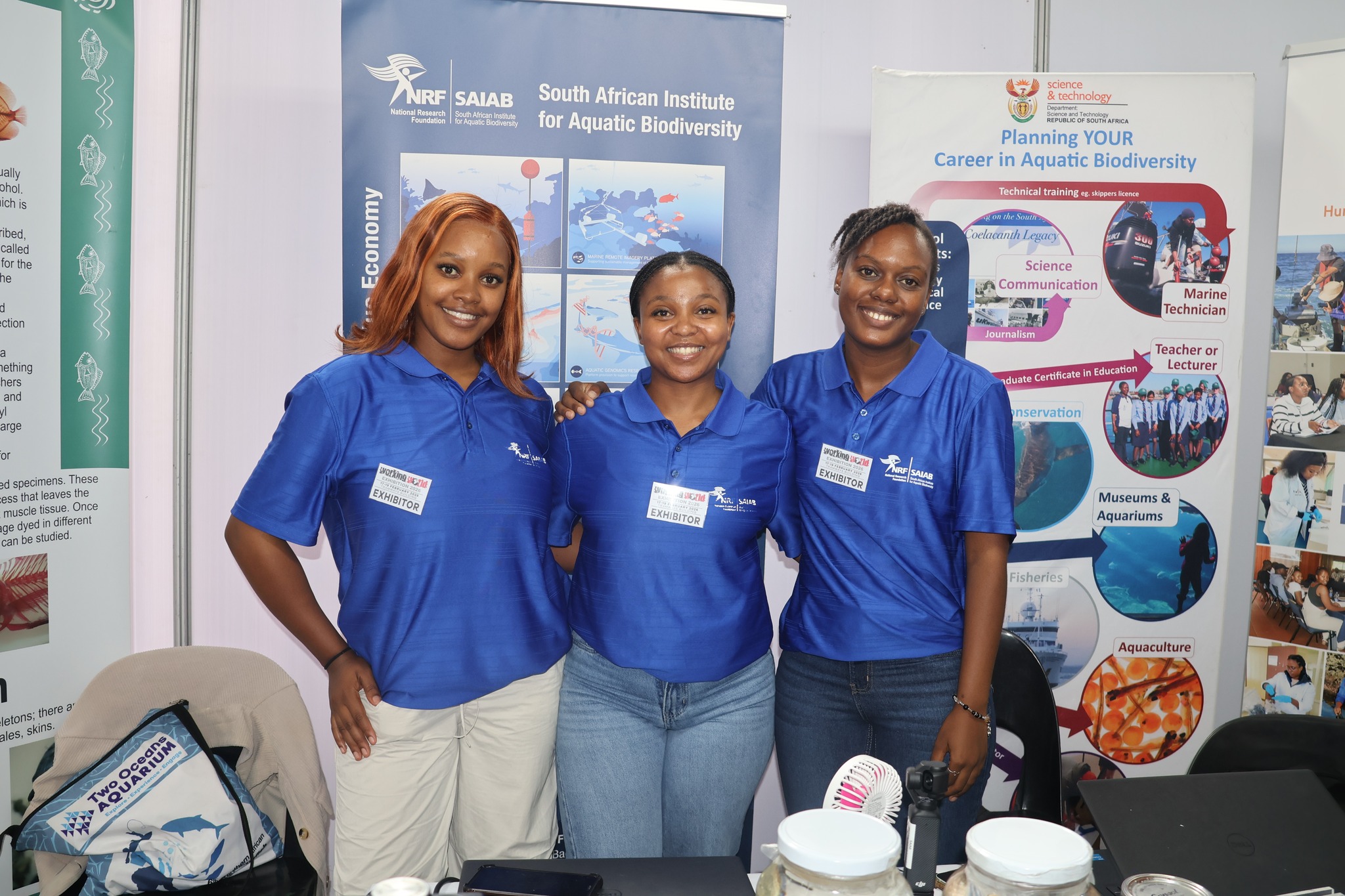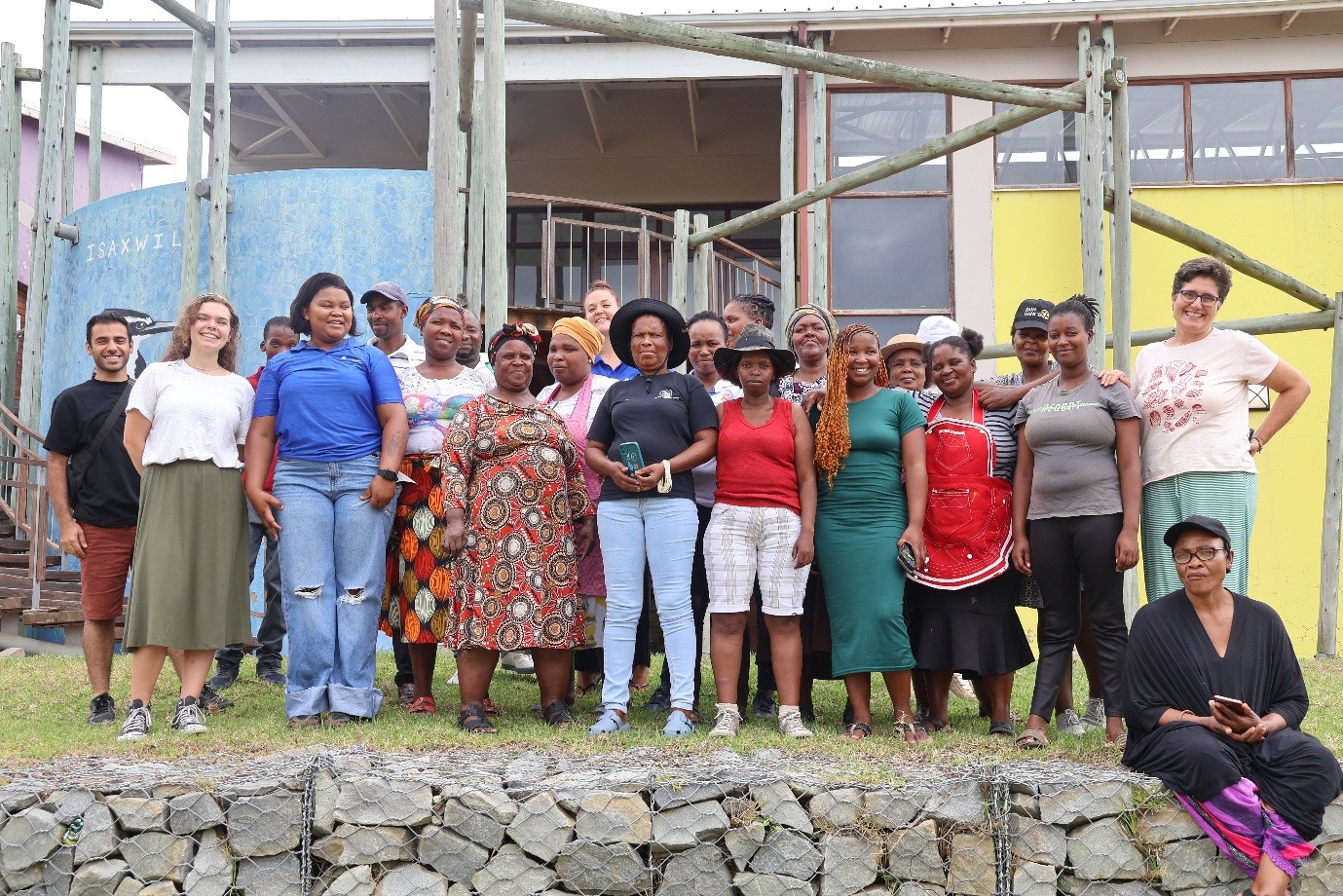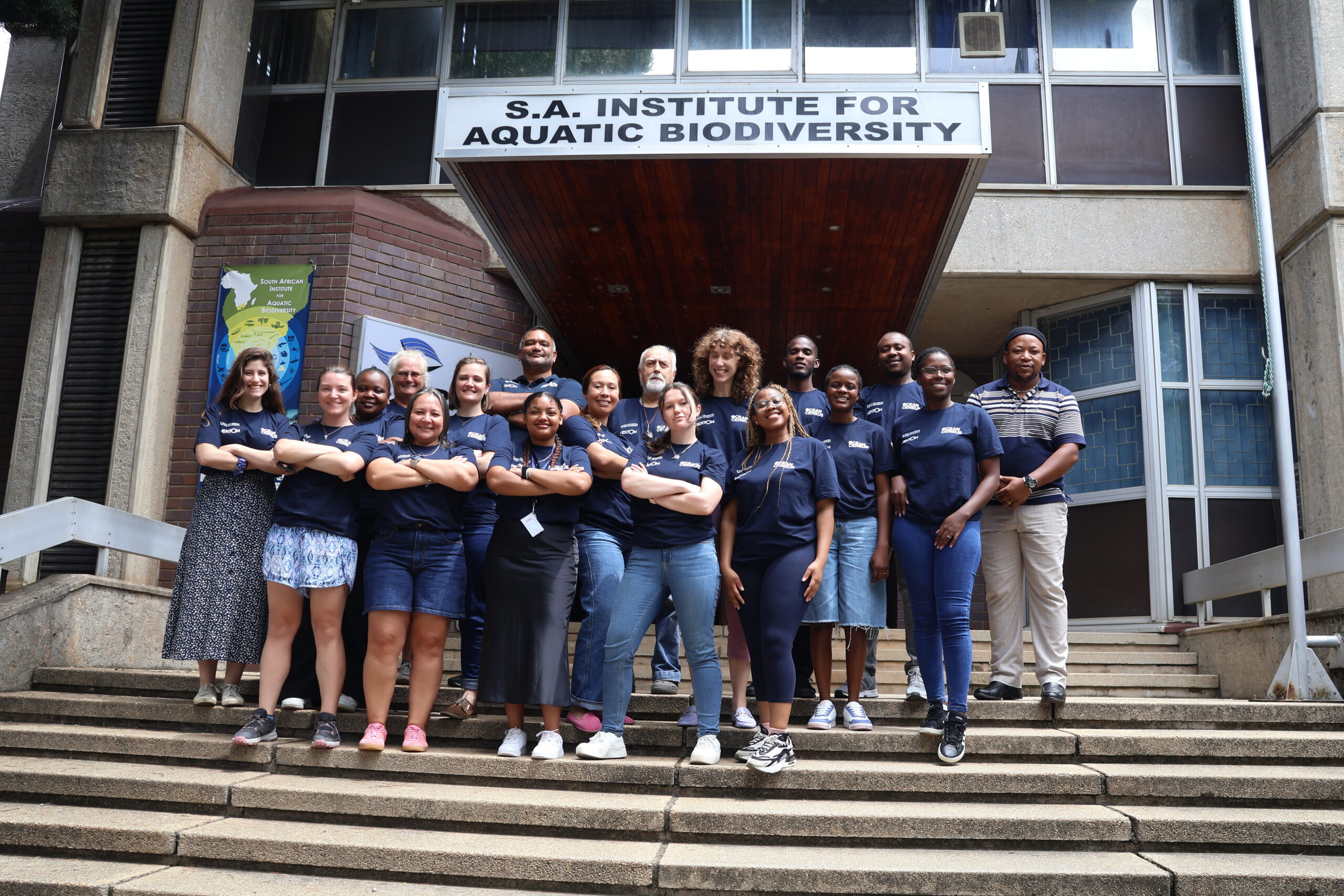The 6th Southern African Marine Linefish Symposium (6SAMLS), held from 19 to 23 August 2024 at Mpekweni Beach Resort in the Eastern Cape, was a significant gathering that brought together Southern African linefish researchers and students, park managers, compliance officers and members of the recreational linefish sector (including shore-based, boat-based and spear-fishers). Jointly organised by the Oceanographic Research Institute (ORI), Rhodes University’s Southern African Fisheries and Ecology Research Laboratory (SAFER Lab), Two Oceans Aquarium and the South African Institute for Aquatic Biodiversity (NRF-SAIAB), this year’s symposium theme was “Fish, Fishers and the Future”. Over the course of the week, conference delegates shared the latest research findings through oral presentations, engaged in thought-provoking discussions, and explored solutions to the challenges facing the linefishery.
Insights from the Organisers
Dr Bruce Mann, Research Associate of the Oceanographic Research Institute (ORI) and chairperson of the 6SAMLS organising committee, articulated that the symposium’s primary goal was “to bring the linefish community in South Africa together, in one place, where we can share our research findings and experiences, and tackle new challenges together, as managers, researchers, user groups as well as research students.” He added, “These symposia have normally been held every five to ten years, and they are a kind of coming together of like-minded people doing the same or different kinds of studies but focusing on linefish research.”
Another organiser, Prof. Warren Potts from Rhodes University, reflected on the evolution of the symposium, mentioning that: “The biggest change that we have seen this year is that there has been a move away from purely ecological types of science and more towards socioecological systems and understanding the linefishery in its entirety.”
Dr Judy Mann-Lang, Executive for Strategic Projects at the Two Oceans Aquarium noted the exceptional student participation in this year’s symposium, saying, “We have had some amazing students that have delivered incredible research that they have been doing with their supervisors, and that’s something that has stood out to me.”
Gareth Jordaan, the Oceanographic Research Institute Cooperative Fish Tagging Project’s Tagging Officer, acknowledged the smooth organisation of the event, with the only challenge being “putting the book of abstracts together and going through all the abstracts.”
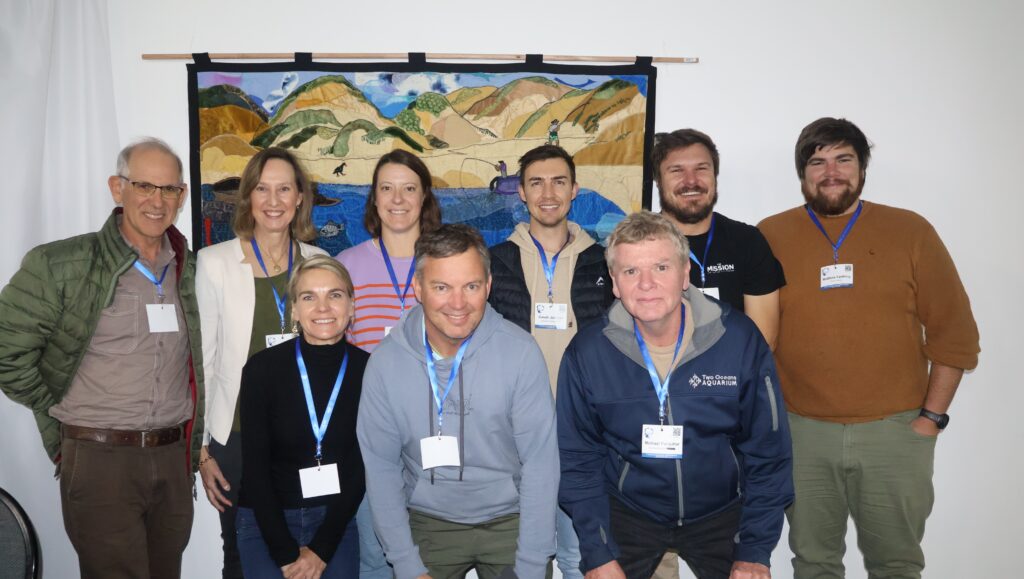
The 6th Southern African Marine Linefish Symposium Organising Committee. Back row (from left to right): Bruce Mann (ORI), Judy Mann-Lang (Two Oceans Aquarium), Taryn Murray (NRF-SAIAB), Gareth Jordaan (ORI), Alex Winkler (SAFER Lab, Rhodes University), Matthew Farthing (SAFER Lab, Rhodes University). Front row (from left to right): Amber Childs (SAFER Lab, Rhodes University), Warren Potts (SAFER Lab, Rhodes University), Michael Farquhar (Two Oceans Aquarium).
Highlights from the Keynote Speakers’ Research Focus
The 6SAMLS featured three keynote speakers who provided valuable perspectives on various aspects of fisheries management and conservation.
Prof. Colin Attwood from the University of Cape Town focused on the insights gained from 40 years of monitoring surf-zone fishes at Koppie Alleen in De Hoop, which became a no-take marine protected area (MPA) in 1985. The catch-per-unit-effort (CPUE) survey, initially started a year before the MPA’s proclamation, expanded to include Lekkerwater, another site 11 km away. Dr. Attwood highlighted the analysis of CPUE data, which revealed patterns of density and recruitment over time.
Dr. Kieran Hyder from the Centre for Environment, Fisheries, and Aquaculture Science in the United Kingdom delivered a talk on the complexities of fisheries as socioecological systems that hold significant cultural importance, support livelihoods, and provide food. He emphasised the role of marine recreational fishing (MRF) as a key component of this system, highlighting its widespread participation, economic value, and social benefits.
Dr Philile Mbatha from the University of Cape Town focused her talk on the critical need to recognise and support the livelihoods of small-scale fishers. She emphasised that the sustainable use of ocean and marine resources is deeply connected to what happens “above water.” Dr. Mbatha further highlighted the common misunderstandings surrounding small-scale fishing, noting that “it is more than just a livelihood, but rather a way of life intertwined with complex social, economic, and political factors”.
Attendees’ Reflections
The symposium was attended by more than 95 attendees, with participants expressing their satisfaction and the value they gained from the event.
Nonhle Mlotshwa from Rhodes University shared her reasons for attending: “I wanted to share my research with other scientists and to also get a better understanding of where our linefish community stands today.” She added, “I believe this symposium was a great networking opportunity for me because I got to meet people whose papers I have read and cited. Getting to speak to people that are in your field and have more experience and knowledge than you was my highlight from this conference.”
Skhumbuzo Ndwandwe from the University of Zululand attended the symposium as an ocean steward. He explained, “I was motivated to attend the symposium because I needed to know how to balance protecting the ocean environment but at the same time not sabotaging the people that live by the coast as they depend on the marine resources for their living.”
Sibusiso Mkhabela, also from the University of Zululand, hoped to gain knowledge about overfishing, overexploitation, and fisheries conservation.
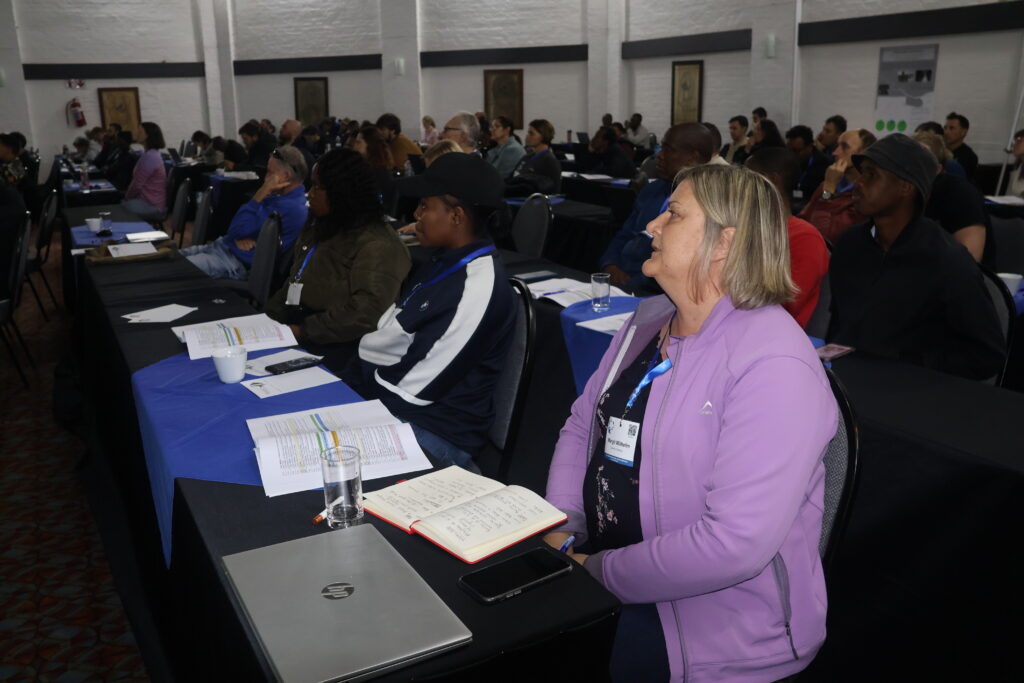
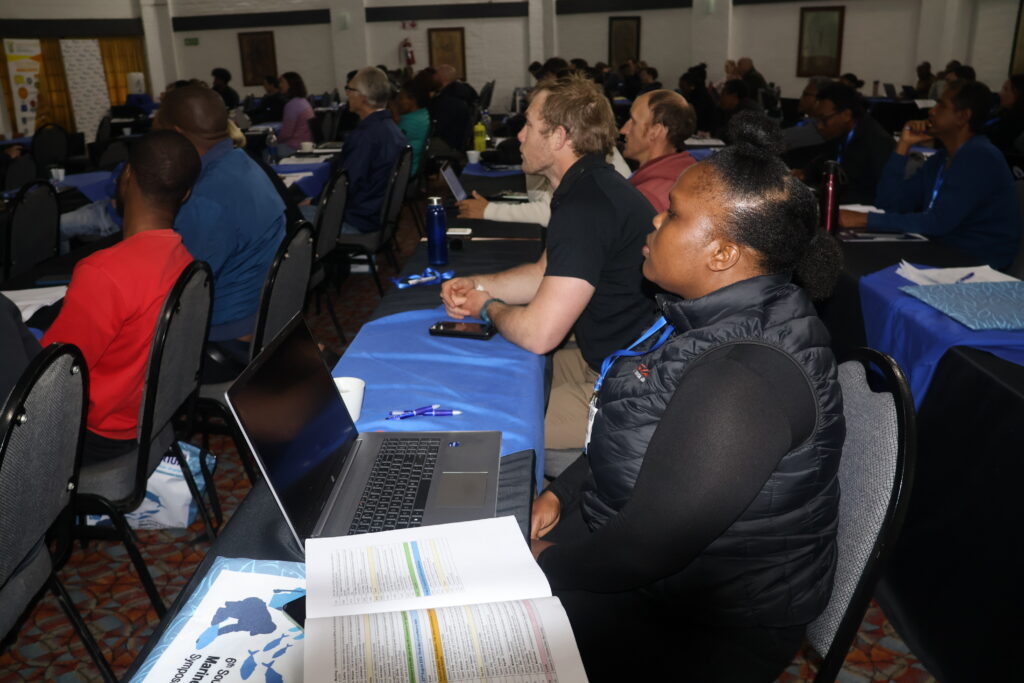
Attendees of the 6th Southern African Marine Linefish Symposium listening to a presentation.
Forging a united path into the future
The goals of the 6th Southern African Marine Linefish Symposium were clearly met with a strong sense of unity and collaboration emerging from the event. Dr Judy Mann-Lang captured the spirit of the symposium, stating, “The first and most important outcome of this symposium is the feeling of unity. The community of linefish scientists is amazing because we have got spirit and passion. We are moving forward from this symposium with a greater feeling of enthusiasm and support for each other and a direction into the future.”
As the symposium concluded, the importance of ensuring that the linefish research and associated insights shared reach the relevant stakeholders was emphasised. The event not only addressed current challenges but also paved the way for future collaboration and innovation in linefish research and management. The enthusiasm and support generated during the week will undoubtedly drive the linefish community forward in its mission to achieve sustainability and secure the future of this vital sector.
